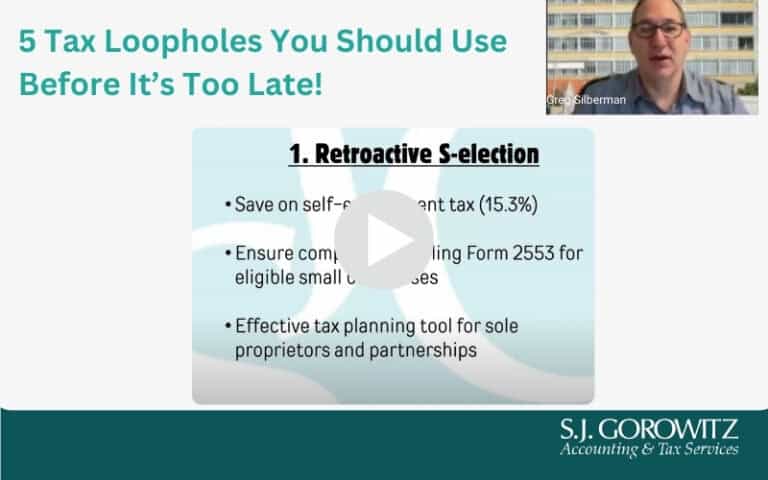By Candace Spencer, CPA, MAFM and Certified QuickBooks ProAdvisor
 Have you ever been surprised with a large tax bill? When is the last time you received tax planning and/or projections and knew where you stood before year-end? Do you realize that those two questions are closely related? By getting solid financial information and acting on it in a timely fashion, you can prevent unpleasant surprises come filing season. With December right around the corner, time is running out. The good news is that it’s not too late; however, it’s now a race against the clock. If you need more motivation to start thinking about such annoyances as taxes this far before April 15, here are three reasons why you may want to consider tax planning.
Have you ever been surprised with a large tax bill? When is the last time you received tax planning and/or projections and knew where you stood before year-end? Do you realize that those two questions are closely related? By getting solid financial information and acting on it in a timely fashion, you can prevent unpleasant surprises come filing season. With December right around the corner, time is running out. The good news is that it’s not too late; however, it’s now a race against the clock. If you need more motivation to start thinking about such annoyances as taxes this far before April 15, here are three reasons why you may want to consider tax planning.
First, if you haven’t already heard, there have been major changes in the tax law for 2013. Therefore, you can expect the 2013 tax year will NOT be like last tax year. Here are just a few changes you need to be aware of:
- In 2012 100% of itemized deductions and personal exemptions were allowed, whereas in 2013 itemized deductions and exemptions will be phased out at certain income levels.
- The tax tables have been adjusted to include a 39.6% tax rate!
- In 2013 there is an Additional Medicare Tax of .9% that will be imposed on joint filers who have wages in excess of $250,000 and single filers with wages in excess of $200,000.
- In 2013 there is new tax of 3.8% on “Net Investment Income” This tax will be assessed on investment income above certain income levels and apply to interest, dividends, annuities, royalties and rents.
- Businesses should also be aware of several law changes that the partners/shareholders need to consider.
Second, it’s nice to have options as well as a heads-up before getting hit with a tax bill. Now that you are aware of some of the major tax law changes, it’s time to start planning. By not waiting until tax season to know where you stand, you have bought yourself more time and options. You can now implement tax savings and minimization strategies before year-end with the ultimate goal of keeping your hard-earned money in your pockets instead of forking it over to the IRS. There is an array of different alternatives you can pursue to achieve this goal, depending on your particular circumstances. Figuring out which one is best suited for you will require an assessment of your individual needs and goals.
Third, a comprehensive tax plan involves more than the current tax year; it should also include planning for future financial goals. Once you have 2013 under control and have more financial leverage, tax planning shouldn’t end there. The next thing is to prepare for 2014 and beyond. This may require you to make adjustments with your Human Resources department or employer. It may even require monthly or quarterly financial statements to keep an eye on your business operations. It’s much easier to spread out your tax savings efforts throughout the year than to try to do it all in November and December. The planning engagement should include a consultation that helps you achieve future goals, whether they involve wealth accumulation, retirement, financial stability, or just having enough to live comfortably.
Whatever your ultimate financial goal, you aren’t likely to get there by accident. So plan to reduce taxes, plan to give yourself options and plan for your future. It’s one of the smartest things you can do for yourself in both the short and long term.

























